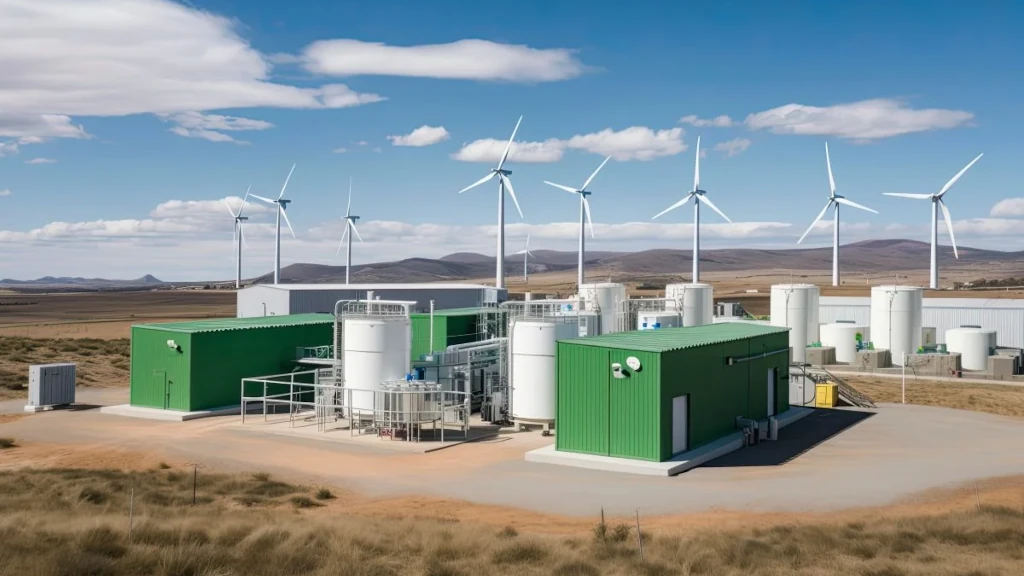February 1st, 2024 By Ben Payton Image : rufous / Adobe Stock
The private sector is playing an ever increasing role, but grid capacity constraints and macroeconomic headwinds pose key challenges
February 1st, 2024
At the beginning of 2024 Africa has come to a key juncture in its renewable energy rollout.
The potential of technologies such as wind and solar energy to help close the continent’s energy access gap is now beyond doubt. Across Africa, however, there are multiple challenges in accelerating the speed and scale of the drive for renewables.
Roughly half of Africa’s population, around 600m people, lacks access to electricity; millions more endure an unreliable or intermittent supply.
Solar, in particular, has a key role in bringing more reliable access. Most of Africa enjoys excellent conditions for solar generation; and solar is well-suited for both utility-scale projects and smaller schemes designed to serve homes and businesses in remote areas.
Last year’s COP28 climate conference, along with the Africa Climate Summit held in Nairobi last September, reaffirmed the importance of renewables on the continent.
But whether 2024 will see donors and development finance institutions (DFIs) turn commitments into action remains to be seen. The International Energy Agency (IEA) estimates that $28bn in concessional capital is needed each year up to 2030 to mobilise $90bn in private sector investment – a more than tenfold increase from the present level.
Technologies mature
Hydropower, which has played a key role in the power sectors of many African countries for decades, remains the leading source of renewable energy on the continent. However, it is solar that is increasingly emerging as the main source of new capacity.
According to the African Solar Industry Association (AFSIA), the continent installed a record 3.7 GW in 2023, representing year-on-year growth of 19%. AFSIA notes that utility-scale solar projects are less common in Africa than in the United States, Europe or China. By contrast, it says 65% of the capacity added last year came from commercial and industrial projects – a large share of which are in South Africa.
“In [the] absence of reliable utility companies and grids supplying the required electricity, African companies and businesses finally have found an alternative with solar and storage thanks to plummeting prices of both key components,” AFSIA said in a report.
Meanwhile, cash-strapped utilities are increasingly looking to the private sector to supply electricity from large-scale wind and solar projects to the grid. In South Africa, a bidding round for independent power producer (IPP) projects, which will conclude in April, will be crucial for efforts to end the country’s disastrous power shortages.
Zambia is another country where the government is turning to the private sector, as it looks to extend electricity access to 60% of its population by 2030. Reforms introduced by President Hakainde Hichilema have facilitated private investment in the power market, with a focus on streamlining regulator approvals.
“Most renewable energy projects will continue to be financed at an increasing rate by the private sector in Zambia,” says Kusobile Kamwambi, head of the country’s Presidential Delivery Unit.
But one challenge, likely to become ever more evident in 2024, is that electricity grids in many African countries are struggling to absorb the power supplied by renewables. In Zambia, for example, ZESCO has set a cap of 50 MW on IPP projects – a limit that makes investment less attractive for some players in the sector.
Grids and batteries
The electricity shortages in countries such as South Africa highlight the importance of upgrading grid infrastructure at both the national and regional levels. Holger Rothenbusch, managing director and head of infrastructure and climate at British International Investment, the UK’s DFI, says that investment in cross-border transmission infrastructure will increase. He notes that there are “many exciting prospects” in decentralised renewable energy systems, which enable renewable generation in areas where grid access remains difficult.
“We are starting to see the potential of mini-grids to bring power to countries such as DRC and Burundi with historically low rates of access,” he says.
“Projects are being delivered with attractive financing models such as grants and private capital to mitigate offtake risk.”
Source: African Business , 1st February 2024
 afric-Invest
afric-Invest